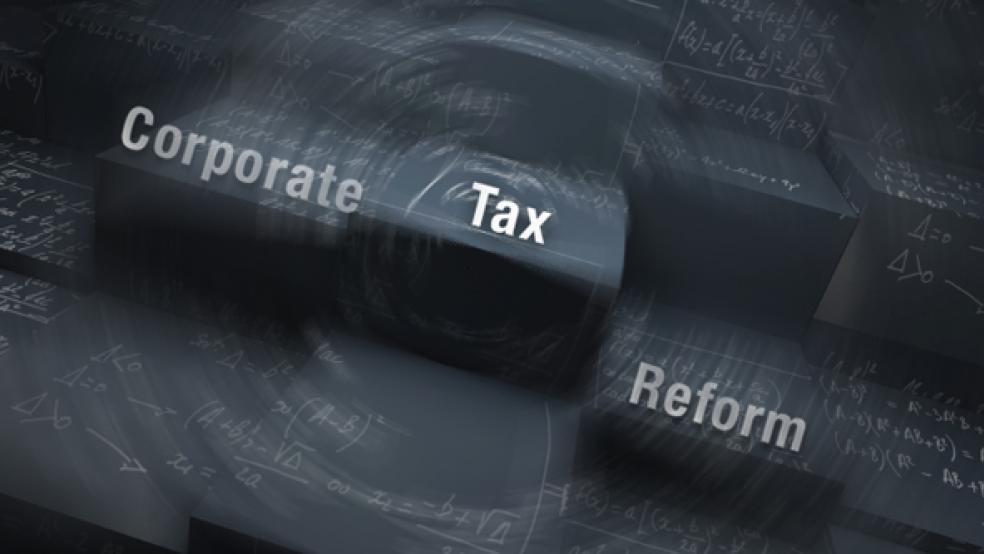The debate over just what to do about corporate inversions is exposing one fault-line after another in U.S. tax and economic policy.
Perhaps the biggest irony of all, however, is that one company after another is forking over millions of dollars in legal and investment banking fees in order to base themselves in the United Kingdom, once known for being the domain of sky-high taxes, active labor unions and other such things that corporate leaders deplore. But after decades under Margaret Thatcher and “New Labor,” the high taxes in the U.K. are felt mostly by individuals, not corporations. By next year, the main corporate income tax rate will have fallen to 20 percent, from 28 percent in 2010 — and about half the top 39.1 percent nominal rate at which corporate income is taxed between the federal and state levels in the U.S.
The result? It’s almost a race to reincorporate abroad, with M&A transactions being the device of choice. A case in point is Chicago-based pharmaceutical company AbbVie, which agreed to pay $54 billion to acquire Shire, the Irish drug manufacturer earlier this month. The allure wasn’t just Shire’s lineup of products, but its status as an EU-based company, which will enable AbbVie to reincorporate on the island of Jersey in the English Channel. The company will still be run from Chicago, though.
Related: Corporate Tax Inversions Will Cost U.S. Billions — and We’ll All Pay
Understandably, this has President Barack Obama and a bevy of Congressional figures fuming, and talking about “corporate deserters.” The Joint Committee on Taxation calculated in May that placing new limits on the ability of companies to undertake these inversions would allow the U.S. Treasury to collect nearly $20 billion in additional revenue over the next decade. But Congress hasn’t put those limits in place. For as much as the deficit has come down in recent years, that added corporate tax revenue could still make a bit of difference.
Related: Obama Could Curb Corporate ‘Inversions’ on His Own
Let’s be pragmatic. A corporation’s objective is to make money for its shareholders, not pour that money into the coffers of any government. What we are seeing today is the all-too-predictable outcome of decades of evolution of giant transnational corporations that are increasingly independent of any single nation state. Instead, the states rely on them: That’s the logic behind tax holidays and other goodies doled out by state and local governments trying to convince big employers to relocate to their neck of the woods or to stay put.
There are a few points of leverage for the government and Congressional Democrats have taken aim at one of them, introducing a bill that would ban companies that have pursued these inversions from seeking federal contracts.
Related: Will Congress Ever Crack Down on Corporate Tax Abuse?
One way or another, inversions are clearly damaging. If they continue, they’ll shift the taxation burden more firmly than ever onto others, including onto the shoulders of small businesses — those bakeries, printing companies, hair salons and other local employers who don’t have the resources, the know-how or, bluntly put, the motivation to find creative ways to minimize or eliminate their tax liability. Small businesses have traditionally been stronger job creators than they are at present; leaving them to struggle under an additional burden would be a risky policy move.
Then, too, there is the impact on individuals. Effective federal income tax rates in the United States are lower than they have been in decades; chances are that if inversions continue unchecked, there will be pressure to raise tax revenues elsewhere.
Related: Dems’ Proposal on Tax Avoidance Misses Real Problem
Daniel Wiener, CEO of Adviser Investments, notes that individual investors will shortly be feeling some tax-related pain from inversions: Anyone who owns shares in companies that completes one of these transactions will, according to IRS rules, be treated as if they had actually sold their shares and owe taxes on the gains. It doesn’t matter whether or not they keep holding the shares of AbbVie or Forest Laboratories, which just completed a $28 billion merger with Activis PLC at the beginning of July. Forest plans to reincorporate in Ireland, and when it does so, shareholders will owe those capital gains, full stop. Wiener calculates that transaction alone could generate $3.2 billion in taxes owed by investors in Forest Laboratories.
The inversion trend ultimately leaves us with two requirements: reduce the corporate tax rate and dramatically improve corporate tax collections. The one is no good without the other. The longer we confine the debate solely to inversions, and postpone a hard-headed discussion of what corporate tax reform will look like, the greater the odds are that small businesses and individual taxpayers will end up paying the price.
Top Reads from The Fiscal Times:
- Why the Rich Should Call for Income Redistribution
- The 10 Highest Paid CEOs of 2013
- How Congress Is ‘Killing Our Transportation System’






